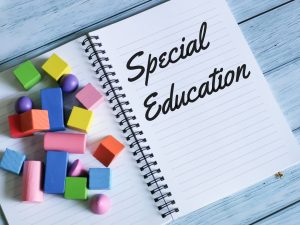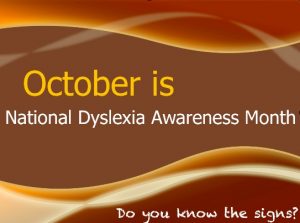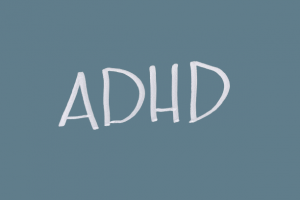10 Signs of Dyslexia in Children That Parents Should Look Out For
 These are the 10 signs to look out for if you suspect dyslexia in your child, according to experts. Read more ›
These are the 10 signs to look out for if you suspect dyslexia in your child, according to experts. Read more ›
 These are the 10 signs to look out for if you suspect dyslexia in your child, according to experts. Read more ›
These are the 10 signs to look out for if you suspect dyslexia in your child, according to experts. Read more ›
 Limited time or resources shouldn’t prevent schools from conducting informal and formal assessments of students with disabilities, including those with significant cognitive disabilities. In fact, collecting high-quality data about a student’s performance can guide educators in making more informed decisions about instruction and individualized supports, said the National Center on Educational Outcomes, in a recent paper. Read more ›
Limited time or resources shouldn’t prevent schools from conducting informal and formal assessments of students with disabilities, including those with significant cognitive disabilities. In fact, collecting high-quality data about a student’s performance can guide educators in making more informed decisions about instruction and individualized supports, said the National Center on Educational Outcomes, in a recent paper. Read more ›
 CHC staff member Lauren Sims recounts her experience with raising a son who has ADHD—the challenges and the rewards—and offers advice for parents who may be just beginning their ADHD journey. Read more ›
CHC staff member Lauren Sims recounts her experience with raising a son who has ADHD—the challenges and the rewards—and offers advice for parents who may be just beginning their ADHD journey. Read more ›
 Up to 20 percent of public school students are served under the Individuals with Disabilities Education Act, but only 7 percent of Asian Americans are, the lowest of any group. Read more ›
Up to 20 percent of public school students are served under the Individuals with Disabilities Education Act, but only 7 percent of Asian Americans are, the lowest of any group. Read more ›
 International Dyslexia Awareness Month was established by the International Dyslexia Association (IDA) to raise awareness and educate others about dyslexia. Read more ›
International Dyslexia Awareness Month was established by the International Dyslexia Association (IDA) to raise awareness and educate others about dyslexia. Read more ›
 Hearing a health care professional say you have attention-deficit/hyperactivity disorder (ADHD) can be confusing. The good news is that the emotions and behaviors you have been concerned about are actually symptoms of a treatable disorder. Read more ›
Hearing a health care professional say you have attention-deficit/hyperactivity disorder (ADHD) can be confusing. The good news is that the emotions and behaviors you have been concerned about are actually symptoms of a treatable disorder. Read more ›
 As programs support all children during the transition to kindergarten, it’s key to prepare children with Individualized Education Programs (IEPs) and their families. Use these tips and resources to ensure that children with disabilities have a smooth transition and educators who receive them feel fully prepared to support their success in school. Read more ›
As programs support all children during the transition to kindergarten, it’s key to prepare children with Individualized Education Programs (IEPs) and their families. Use these tips and resources to ensure that children with disabilities have a smooth transition and educators who receive them feel fully prepared to support their success in school. Read more ›
 Executive function is a set of mental skills that act as a command center in the brain. They help us plan, manage time, control emotions, and get tasks done. They’re also important for staying focused and solving problems. So struggling with executive function can have a big impact on kids.
Executive function is a set of mental skills that act as a command center in the brain. They help us plan, manage time, control emotions, and get tasks done. They’re also important for staying focused and solving problems. So struggling with executive function can have a big impact on kids.
Trouble with executive skills is common in kids who learn and think differently. And all kids with ADHD struggle with it. Read more ›
 For most students, the 2021-22 academic year will be starting in-person, and won’t feel like last year — but it will still feel different from years past. Despite so many unknowns on the horizon, there are challenges you can anticipate. Read more ›
For most students, the 2021-22 academic year will be starting in-person, and won’t feel like last year — but it will still feel different from years past. Despite so many unknowns on the horizon, there are challenges you can anticipate. Read more ›
 Executive functioning isn’t something that just crops up during adolescence. Our kids have been working on their executive functioning skills since they were babies.
Executive functioning isn’t something that just crops up during adolescence. Our kids have been working on their executive functioning skills since they were babies.
“Executive functioning is a set of skills that allow kids to organize and complete tasks in a timely manner,” says school psychologist Kevin Kemelhar. These skills include initiating tasks, maintaining steam while completing them, and reaching goals. A big part of this process involves “inhibition,” where kids learn to mute their impulses to do something else (like Snapchatting their friends) while they complete the task at hand. Read more ›